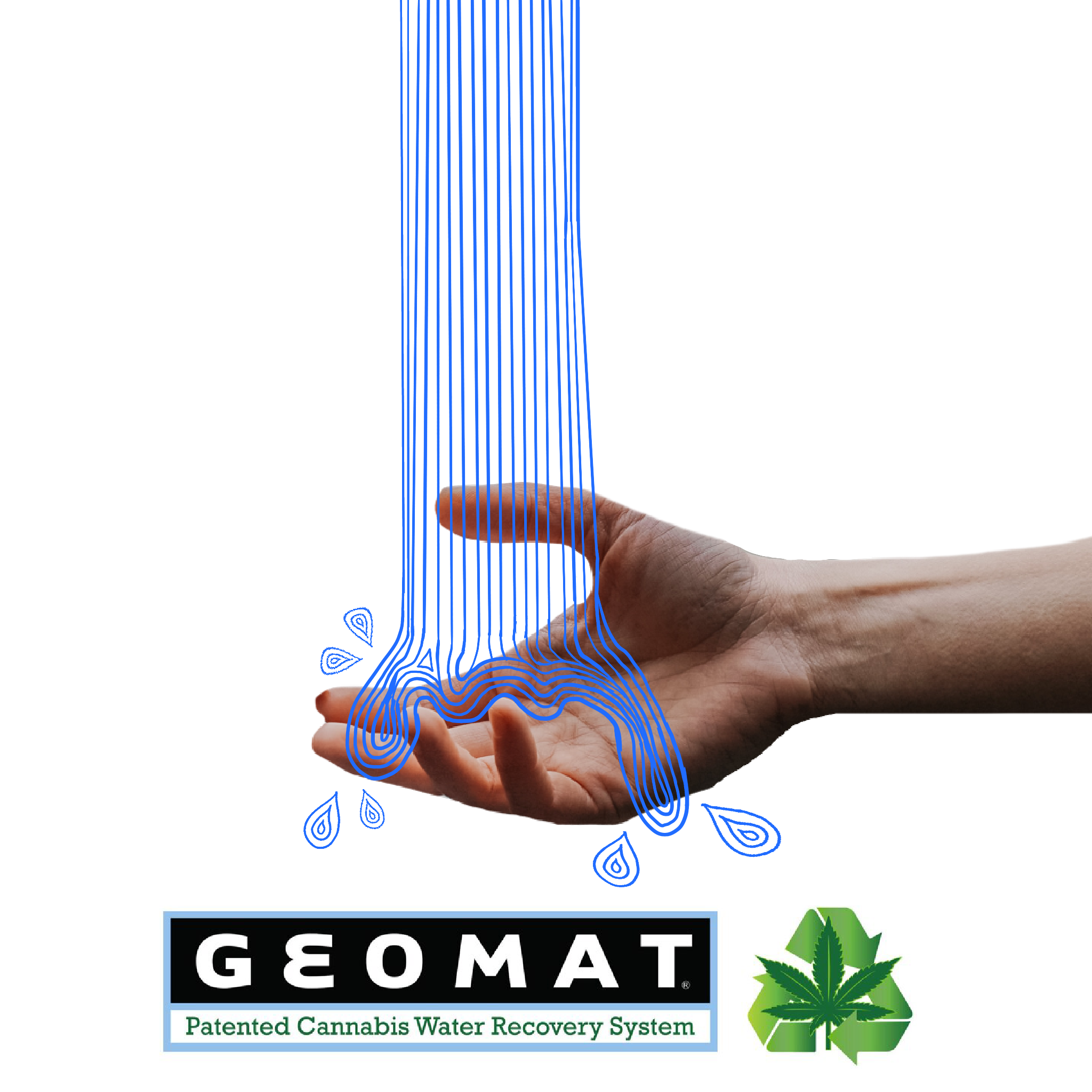New Frontier Data report shows that the legal production of cannabis represented nearly a quarter of the US market in 2020. By 2025, this share should increase to reach 35% of the market. There is no question that this industry will continue to flourish overtime, with 16 states having currently legalized cannabis and the subject of federal legalization becoming a prevalent topic within the Senate. But with the thriving success this trade is reaching, many of these huge advances hold major societal and environmental impacts as a whole. Water, the vital natural resource and key factor in cultivation, has become a major concern where cannabis cultivation is expanding.
Industrial Water Usage
In cannabis cultivation, water is used in a variety of ways throughout the seed to sale process. Irrigation is the primary use, with a single cannabis plant consuming up to 6 gallons of water per day. In greenhouses and grow farms, water is also used to humidify or cool down cultivation environments, dissolve nutrients, manage pests and sanitize equipment. When it comes to cannabis cultivation, farmers have established a variety of methods and techniques that can require excessive amounts of water to produce higher yields and successful grows.
Rising Water Demands in a Growing Industry
New Frontier Data’s Cannabis H20: Water use & Sustainability in Cultivation reports that with the predicted market increase by 2025, the total water usage of the legal cannabis market will also increase by 86%. The developing breakthroughs in legalization that continue to advance the industry are also paving room for an extreme blow to our environment and natural resources being used. “Ongoing environmental concerns, and now rapidly increasing pressure to price competitively, are making water efficiency critical for lower operational costs and industry sustainability in the U.S. and abroad,” states Giadha A. DeCarcer, CEO & Founder of New Frontier Data.
With the limbo between legal and illicit the state of the industry is currently in, this environmental concern for water and sustainability is progressively growing among the hustle of competitive brands and companies carving their way into the industry. In some states where cultivation is outstanding, mandates and regulations regarding environmental compliance have been administered and further weigh the results of significant water usage and electricity consumption. New Frontier Data’s report on Water use & Sustainability shows some states are considering requiring licensed growers to report their water use to the state to enforce sustainability in cultivation. The incentive would be to encourage operations to gauge their water efficiency more consciously, but these mandates don’t solve the rising high demand for water this industry is left facing. Where the Western part of the country faces climate change and increasingly common droughts annually, Arizona, California, Colorado, Nevada, New Mexico and Oregon compose 71% of the nation’s total cannabis supply. As new technology and scientific data improves each day, the urgency for sustainability and water efficiency in cannabis lays as a responsibility for those making immense waves in the industry.
A Wastewater Recovery Solution
Geomat, an environmental company providing Patented closed loop water recovery solutions, is committed to this responsibility. For over 20 years, their versatile systems have been used to recapture and reuse all wastewater and runoff when used. Providing sustainable water solutions to rental car wash markets and hazmat operations, Founder Al DeChard saw the cannabis industry being no different. “The cost and demand for water is rising in a world where some places see this element as a precious commodity,” DeChard explains, “Any way this water can be reused and recaptured can benefit cannabis grow facilities and the planet as a whole.” Which is what Geomat, along with other newly developed smart irrigation systems, are intended to do.
In the whirlwind of a year I have worked for Geomat, it did not take long to fully understand the soaring need for water in all stages of cannabis operations. To the irrigation process for the plants itself, to thoroughly sanitizing each instrument of equipment used in cultivation, the act of recapturing and collecting water runoff to be reused can significantly reduce overall water usage. When Geomat systems operate, the water runoff that results in the washing process drains down the Geomat into a filtration and pump system, purifying the water and holding it in a tank, ready for reuse. The benefits of water recovery systems like Geomat are endless, leaving no carbon footprint or negative environmental impact with every use. On a smaller scale, some greenhouses and outdoor farms have created sustainable irrigation solutions that reuse rainwater collected to help with irrigation and other key purposes. No matter who or where cannabis cultivation is happening, there is an efficient, sustainable water solution out there for each plant grown.
So What Are We Waiting For?
In an industry that thrives on being “green,” it is up to those of us leading in cannabis to be held accountable for accomplishing sustainability in cannabis cultivation. Identifying and enacting wastewater solutions that are sustainable and maintain environmental compliance can not only successfully address this current rising issue, but lead solutions for generations to come. The boom of cannabis cultivation may have initiated an energy intensive industry, but it is not too late to adapt these cultivation operations to more efficient practices and procedures.
Advancements and developments in the industry continue growing faster than the growth cycle of cannabis itself. In every aspect of cannabis cultivation from seed to sale, we are destined with the accountability to pave a path towards a more sustainable and efficient future in the cannabis industry.

